Partners
Partnership Philosophy
The creation of partnerships around issues of common interest – such as good land governance and tenure security – is a crucial element to achieve long-lasting change at the society level, as it aligns priorities and actions of a large number of individuals and organisations.
The Arab Land Initiative’s partnership philosophy builds on the theory of change of the Global Land Tool Network. Capacity development is at the heart of the Initiative approach, as it enables partners to have a stronger impact, a better outreach and more successful outcomes.
Empowered land governance champions can influence power dynamics, facilitate national discussions, support coalition development on key topics and engage with policy makers and international partners. This positively contributes to social and economic development in urban, peri-urban and rural areas, fostering peace and stability, increasing resilience to climate change and mitigation of its impact.
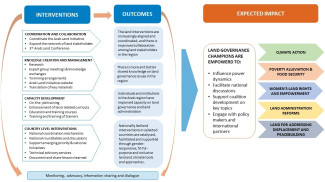
Our Partners
The Arab Land Initiative, coordinated by UN-Habitat through the Global Land Tool Network’s Secretariat, conveys a broad range of global, regional and national partners, including governments, land professionals, academia, civil society, private sector and international organisations.

The Lincoln Institute of Land Policy seeks to improve quality of life through the effective use, taxation, and stewardship of land. A nonprofit private operating foundation whose origins date to 1946, the Lincoln Institute researches and recommends creative approaches to land as a solution to economic, social, and environmental challenges. Through education, training, publications, and events, we integrate theory and practice to inform public policy decisions worldwide.
Under the Twinning Arrangement programme, the Lincoln Institute of Land Policy and the American University of Beirut-Beirut Urban Lab will be hosting a series of selective meetings with stakeholders with the objective of informing public policy making and research agendas in Lebanon. The Beirut Urban Lab will work collaboratively to support local land governance processes in Beirut and to advocate for a better management of land beginning with a rigorous assessment of property taxation and land regulation systems.

The American University of Beirut (AUB) is an institution of higher learning founded to provide excellence in education, to participate in the advancement of knowledge through research, and to serve the peoples of the Middle East and beyond. Chartered in New York State in 1863, the university bases its educational philosophy, standards, and practices on the American liberal arts model of higher education. The university believes deeply in and encourages freedom of thought and expression and seeks to foster tolerance and respect for diversity and dialogue. Graduates will be individuals committed to creative and critical thinking, life-long learning, personal integrity, civic responsibility, and leadership.
Under the Twinning Arrangement programme the American University of Beirut-Beirut Urban Lab and the Lincoln Institute of Land Policy hosted a series of selective meetings with stakeholders with the objective of informing public policy making and research agendas in Lebanon. The Beirut Urban Lab worked collaboratively to support local land governance processes in Beirut and to advocate for a better management of land beginning with a rigorous assessment of property taxation and land regulation systems.
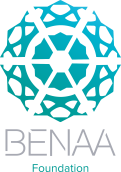
BENAA Foundation is a Youth-Led non-profit organization that aims at building the capacities of the youth, in order to build sustainable development projects, and create an enabling community in the MENA region.
Under the Twinning Arrangement programme, BENAA Foundation, an Egyptian social enterprise, together with Masarat Nissaia a Tunisian Association investigate land inheritance and land governance from a feminist, social and legal geography perspective. Through interviews and data collection the project will collect the first hand experiences of women as it relates to their land inheritance. Once analyzed the data will be used to develop a policy brief on the project’s findings.
University of the West of England (UWE Bristol) is a modern and dynamic Post 1992 UK University welcoming students from 140 countries. With over 30,000 students and 3,200 staff it is one of the largest and most popular universities in the UK and is currently ranked 2nd in England for Student Experience. Our Purpose is to solve future challenges through outstanding learning, research and a culture of enterprise. We aim to create opportunities for all to thrive and flourish.
The twinning arrangement’s objective between the University of West of England (public research university founded in 1992) and the Birzeit University (educational institution founded in 1972 offering a wide range of academic programs and professional development opportunities) is to address the capacity building aspects of institutional capacity in the sector as well as to ensure that the wider benefits of land governance for all citizens are promoted, thereby encouraging women to be active in the sector and be aware and claim their land rights. The cooperation will draw on diagnostic tools developed by UWE to critically assess sector needs at undergraduate, postgraduate and professional levels, focusing on supporting good land governance and existing Palestinian Land Institutions.

Birzeit University is an independent, not-for-profit institution of higher education overseen by an autonomous Board of Trustees. The entrepreneurial formation of Birzeit University started in 1924 with its launch as a primary school for girls. This first building block rolled out a legacy of knowledge and learning and ensured a process of documented planning and assessment that led to our strategy today.
The twinning arrangement’s objective between the Birzeit University (educational institution founded in 1972 offering a wide range of academic programs and professional development opportunities) and the University of West of England (public research university founded in 1992) is to address the capacity building aspects of institutional capacity in the sector as well as to ensure that the wider benefits of land governance for all citizens are promoted, thereby encouraging women to be active in the sector and be aware and claim their land rights. The cooperation will draw on diagnostic tools developed by UWE to critically assess sector needs at undergraduate, postgraduate and professional levels, focusing on supporting good land governance and existing Palestinian Land Institutions.
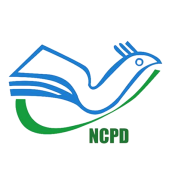
The National Center for Peace and Development (NCPD) is an NGO established in 2002 by a group of liberal-minded persons from the intellectual, business and academic Sudanese community who share the belief that, in developing societies, human rights, democracy and development should go hand in hand. The most-feasible way to achieve inclusive development is by raising the consciousness and educating the public about the true meaning of democratic values and how the profound understanding and respect of those values and the state’s implementation of its human rights obligations would help achieve durable peace and economic development in a country such as Sudan, long torn by civil strife and underdevelopment.
The twinning arrangement between Habitat International Coalition: the National Center for Peace and Development (NCPD) and the Cairo-based Housing and Land Rights Network (HLRN) is focused on capacity building of civil society to meet the challenges of engagement in norm-based solutions to problems facing traditionally marginalized communities, and especially those subject to forced eviction and displacement. The overall goal is to support Sudanese civil society in conflict affected zones to make the transition from the short-term, emergency humanitarian phase toward longer-term, institution-building sustainable development contributions.
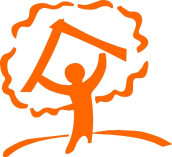
The Housing and Land Rights Network (HLRN), the structure of the Habitat International Coalition (HIC) specialized in the human rights dimensions of habitat, envisions a world with active cooperation of civil society and organs of the state to recognize, defend and fully realize the human right of everyone, everywhere to a secure place to live in peace and dignity (i.e., a human rights habitat).
Within this vision, HLRN seeks to realize the corresponding potential of civil society to play this complementary role through the achievement of specific project objectives by maximizing its relationships, assets and unique potentials through a strategy of building and applying human rights-based tools and approaches that bring about problem-solving policy impact. HLRN’s mission goals are expressed across three mutually reinforcing fields of operation: (1) Coalition building, (2) Knowledge creation and capability development, and (3) Impactful advocacy.
The twinning arrangement between the Habitat International Coalition: The Cairo-based Housing and Land Rights Network (HLRN) operates across the Middle East and Africa regions from Cairo, and the National Center for Peace and Development (NCPD) is based in Sudan is focused on capacity building of civil society to meet the challenges of engagement in norm-based solutions to problems facing traditionally marginalized communities, and especially those subject to forced eviction and displacement. The overall goal is to support Sudanese civil society in conflict affected zones to make the transition from the short-term, emergency humanitarian phase toward longer-term, institution-building sustainable development contributions.
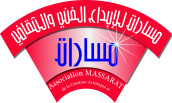
Masarat Nissaia is a Tunisian Association working on gender equality and women’s’ rights, fighting against violence against women in rural areas.
Under the Twinning Arrangement programme, Masarat Nissaia, together with BENAA Foundation, an Egyptian social enterprise investigate land inheritance and land governance from a feminist, social and legal geography perspective. Through interviews and data collection the project will collect the first hand experiences of women as it relates to their land inheritance. Once analyzed the data will be used to develop a policy brief on the project’s findings.
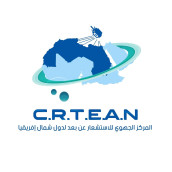
CRTEAN is a Centre for research and studies which aims at encouraging research institutions in northern African States for using remote sensing techniques and upstream systems in the areas of sustainable development and scientific research. It also encourages the transfer of technologies and Capacity building for the member states.
The signed Agreement is part of the Arab Land Initiative, under the BMZ-funded “Arab region programme on good land governance in support to inclusive development, peace and stability”. This agreement comprises an Expert Group Meeting and two trainings on fit for purpose land administration and aim in developing knowledge and capacity on fit-for-purpose land administration principles and approaches and adapt them to the countries in the Arab region.
The Arab Group for the Protection of Nature (APN) is an independent non-profit organization that seeks to enhance the Arab region’s sovereignty over food and natural resources, particularly in areas impacted by war, conflict and occupation. APN was established in April 2003 by a group of motivated people who aim to protect the Arab environment alongside regional and international organizations.
The Arab Group for the Protection of Nature seeks to enhance the capacity of Arab peoples, including those living under occupation and armed conflicts, to protect, sustain, and establish sovereignty over their natural resources and food, while strengthening the advocacy efforts of civil society organizations on regional and global environmental issues.
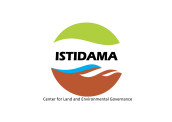
ISTIDAMA is an independent policy making Center for Land and Environmental Governance. It delivers specific assignments, according to needs, on topics related to land and environmental governance in Sudan.
ISTIDAMA’s vision is to be the pole of knowledge and expertise in the field of land and environmental governance in the region. The Center’s mission is to provide high expertise and experience while bringing together different stakeholders, facilitating the dialogue between Governmental organizations, communities, investors, and CSO’s.
The Center focuses on research and capacity building, and it aims at: improving policies and strategies in the land and environmental sector in Sudan; strengthening the institutions and legislations regarding land and environmental governance in the country; increasing awareness on land governance issues; reducing conflicts related to land and environment governance in the region.

Founded in 2012, the International Youth Council-Yemen (IYCY) is a non-profit, non-governmental and youth-led organization that targets youth and community in general.
IYCY contributes to youth and community development through programs and interventions either supported by INGOs or through self-financed activities. IYCY’s work doesn’t only focus on youth and women but also on the community as a whole. Its projects include WASH, nutrition, food, health, governance, energy, environment and climate change as well as youth development.
IYCY is very keen on embracing youth and community regardless of their political view, religion, colour, ethnicity or background. IYCY adopts the values of integrity, transparency, and credibility which contribute to the success of its work with other CSOs and INGOs. It has a very good relationship with local authorities and government branches which allow better coordination and implementation of activities and projects.
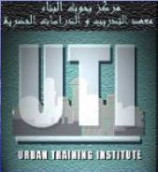
The Urban Training Institute (UTI) is a quasi-private organisation affiliated to the Housing and Building National Research Centre- (HBRC), an Egyptian national government research institution.
UTI seeks to strengthen institutional and human resources capacities that can nurture the improvement of the living and environmental conditions of cities in Egypt and the Middle East.
UTI is a training and capacity building institution specialized in post-graduate and tailor-made training, policy research and technical advisory services. It focuses on urban management & planning, housing & real estate development policies, informal settlements upgrading and urban renewal, urban environmental planning & management, urban infrastructure project management and urban finance. UTI provides tailor-made and specialized training to professionals, technical cadre and policy makers working in central and local government agencies, NGO’s, private sector and educational institutions.
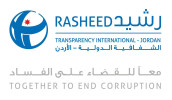
Rasheed (Transparency International-Jordan) is a non-for-profit civil society organization established in 2013. Since April 2014, it has been working in Amman as the Chapter of Transparency International in Jordan.
Rasheed’s mission: strengthen the pillars of good governance based on integrity, transparency, accountability and rule of law through advocacy, monitoring, and social awareness.
Rasheed aims at: reinforcing the involvement of the Jordanian citizen in anti-corruption activities; protecting private entities as well as public and local governance institutions against corruption; supporting the anti-corruption movement; enhancing the efficiency and independence of control agencies specialized in the area of anti-corruption; and strengthening the integrity of the legislative and judicial authorities.
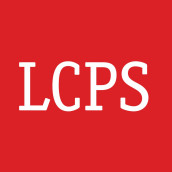
Founded in 1989, the Lebanese Center for Policy Studies is an independently managed, non-partisan, non-profit, non-governmental think tank whose mission is to produce and advocate policies that improve governance in Lebanon and the Arab region. Currently, LCPS has six primary research and advocacy focuses: improving political representation; strengthening decentralization; advocating for a transparent oil and gas sector; supporting policies to create jobs; enhancing stability; and empowering the youth. To better inform policymaker and the wider public, LCPS has produced books, policy papers, briefs and articles on issues such as electoral laws, political parties, sectarianism, administrative reforms, rule of law, decentralization, economic growth, budget and fiscal policy, industry and trade, energy and the environment. Additionally, LCPS has provided a platform for debate by convening over 145 conferences and workshops in Beirut and various Arab capitals to address a range of national and regional issues.
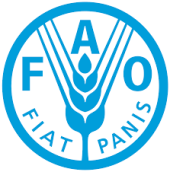
The Food and Agriculture Organization is a specialized agency of the United Nations that leads international efforts to defeat hunger. FAO goal is to achieve food security for all and make sure that people have regular access to enough high-quality food to lead active, healthy lives. With over 194 member states, FAO works in over 130 countries worldwide.
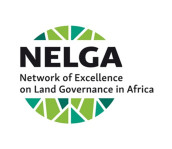
To strengthen human and institutional capacities for the implementation of the AU agenda on land, ALPC has established a Network of Excellence on Land Governance in Africa (NELGA) in cooperation with Germany, World Bank and other partners.
NELGA is a partnership of leading African universities and research institutions with proven leadership in education, training and research on land governance. Currently NELGA has more than 50 partner institutions across Africa.
Objectives of NELGA
Enhancing training opportunities and curricula on land governance in Africa;
Promoting demand driven research on land policy issues;
Connecting scholars and researchers across Africa through academic networks;
Creating data and information for monitoring and evaluation on land policy reforms.
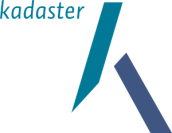
The Netherlands’ Cadastre, Land Registry and Mapping Agency – Kadaster – collects and registers administrative and spatial data on property and the rights involved. This also goes for ships, aircraft and telecom networks. Kadaster are also responsible for national mapping and maintenance of the national reference coordinate system. Furthermore, they are an advisory body for land-use issues and national spatial data infrastructures.
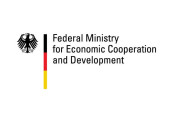
The Federal Ministry of Economic Cooperation and Development (German: Bundesministerium für wirtschaftliche Zusammenarbeit und Entwicklung), abbreviated BMZ, is a cabinet-level ministry of the Federal Republic of Germany. Its main office is at the former German Chancellery in Bonn with a second major office at the Europahaus in Berlin. Founded in 1961, the Ministry works to encourage economic development within Germany and in other countries through international cooperation and partnerships.
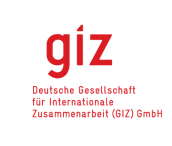
The German Agency for International Cooperation or (GIZ) is an international enterprise owned by the German Federal Government, operating in many fields across more than 130 countries. As a federal enterprise, they support the German Government in achieving its objectives in the field of international cooperation for sustainable development. GIZ offers demand-driven, tailor-made and effective services for sustainable development. GIZ operates in many fields: economic development and employment promotion, governance and democracy, security, reconstruction, peace-building and civil conflict transformation, food security, health and basic education, environmental protection, resource conservation, and climate change mitigation.
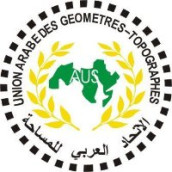
Arab Union of Surveyors (AUS) is the umbrella organization that represents the interests of the profession of Surveying in the following countries: Egypt, Morocco, Syria, Saudi Arabia, Jordan, Tunisia, Sultanate of Oman and Lebanon.
Founded in 2002, AUS seeks to improve and harmonize the profession of surveying in the Arab world and develop the cadastral systems for improving land management and real estate investment as an important part of the socio-economic development in the region.
AUS seeks to:
Organize and improve the profession of surveying in all the Arab countries
Participate in all scientific and professional studies in the field of Surveying and to work on making the practice of the profession science and technology-based
Prepare evaluations and report on the profession in the region
Support collaboration with the international federations and organizations such as FIG and CLGE.
Share experiences among the Arab specialists on technical and professional challenges
Establish and maintain a GIS database for the Arab region

The World Bank is an international financial institution that provides loans to developing countries for capital programs. It comprises two institutions: the International Bank for Reconstruction and Development (IBRD), and the International Development Association (IDA). The World Bank is a component of the World Bank Group (WBG), which is part of the United Nations system.The WBG comprises of three other international organizations: the International Finance Corporation (IFC), the Multilateral Investment Guarantee Agency (MIGA) and the International Centre for Settlement of Investment Disputes (ICSID).
The World Bank’s mission is ‘Working for a World Free of Poverty’.
The Annual World Bank Conference on Land and Poverty each year brings together representatives from governments, civil society, academia, the private sector and the development community to discuss issues of concern to land practitioners and policymakers worldwide. The conference aims to foster dialogue and sharing of good practices by showcasing the diversity of reforms, approaches and experiences that are being implemented in the land sector around the world
Since the inaugural meeting in 2003, the World Bank Conference has become an annual opportunity for GLTN partners to get together and share their experiences, celebrate achievements and learn from challenges encountered along the way.

The International Islamic University Malaysia (IIUM) is a Public Institution of Higher Education (PIHE) in Malaysia.
Established in 1983, the university that is sponsored by eight governments from the Organisation of the Islamic Conference (OIC) is founded upon Islamic principles where Islamic values are inculcated into all disciplines.

The University of East London (UEL) is a public university in the London Borough of Newham, London, England, based at three campuses in Stratford and Docklands, following the opening of University Square Stratford in September 2013. The university’s roots can be traced back to 1892 when the West Ham Technical Institute was established. It gained university status in 1992.

The Syria Report is a news and research organisation established in 2001 to provide information and data on Syria. It features a comprehensive array of statistical information and databases, a directory of Syrian institutions and the Syrian Government’s official gazette. Since 2020, it has a section dedicated to housing, land, and property (HLP) rights.
The publications listed on the website are independent and have no affiliation with a religious, social, or political organization. The readership includes academic and diplomatic institutions, research organisations, NGOs, corporations, and professional firms. Syria Report also offers on-demand political risk analysis, real-time political and business monitoring, and in-depth research.
Disclaimer
The content available on the Syria Report website and its social media does not reflect the opinion or the position of The Arab Land Initiatives, the Global Land Tool Network, UN-Habitat and its member states or governing bodies.
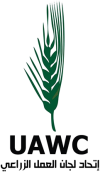
The Union of Agricultural Work Committees (UAWC) is registered as a non-governmental agricultural organization according to the Palestinian Associations and Non-Governmental Organizations Law No. 1 at the Palestinian Ministry of Interior. It is considered as one of the largest agricultural development institutions in Palestine as it was established in 1986 by a group of agronomists. When established, UAWC depended on volunteers completely and formed agricultural committees in the West Bank and Gaza to set the priorities of farmers and help the Union in implementing its programs and community activities.
UAWC is an independent agricultural developmental organization, politically neutral as per its by-laws, policies, vision, mission and practices. UAWC abides, and is guided by the national sectorial strategies and policies as well as the international laws and standards set by the UN’s Security Council and General Assembly resolutions that focus on Palestinian rights of freedom, development, and decent life on their land that is recognized as “Occupied Territories”.

The Land Portal Foundation creates, curates, and disseminates open-access land governance information by fostering an inclusive and accessible data landscape. All of our efforts are in support of our mission to INFORM people, OPEN critical data and information, and DEBATE perspectives on land. We believe that access to information is crucial for achieving good land governance and securing land rights for landless and vulnerable people.

LAND-at-scale is a land governance support programme funded by the Netherlands Ministry of Foreign Affairs and managed by the Netherlands Enterprise and Development Agency (RVO). A large part of the world's population depends on having secure access to land for their livelihoods. LAND-at-scale aims to contribute to fair and just tenure security, access to land and natural resources for all. This will lead to more sustainable and efficient use of land and natural resources for food, housing and production. It will also reduce conflicts and competing claims over land. The programme departs from the understanding that land governance is a crucial precondition for reaching many of the Sustainable Development Goals.
LAND-at-scale is a demand-driven programme and its projects and interventions depart from requests of Dutch Embassies and their in-country partners and contain the upscaling of successful pilots or innovative pilots with upscaling potential. Each intervention is tailor-made, co-created and based on multi-stakeholder analysis. LAND-at-scale aims to link different sectors including technical, legal, socioeconomic approaches to improved land governance, and features a dedicated knowledge management component to support adaptive programming and learning.

The Arab Urban Development Institute (AUDI) is a regional non-governmental and non-profit organization that specializes in research and training in urban development and municipal affairs. AUDI was founded in 1980, with headquarters located in Riyadh, Saudi Arabia. Since its inception, it has grown to encompass more than 650 member cities across 22 Arab countries. The Institute supports municipalities in the Arab region in addressing their urban development challenges by providing credible and impactful policy research products and training programs in four focus areas: municipal institutional development, urban resilience, local economic development and livable cities.
AUDI engages in work that contributes to an improved global urban future through innovative partnerships and collaborative learning by bringing together municipalities, urban researchers, universities, donors and regional and international organizations. The Institute aims to build a strong network between Arab municipalities and regional and international urban development organizations, to contribute to capacity development of municipalities through training and leadership programs, to diversify activities and programs to align with the needs and aspirations of stakeholders and to engage in high quality policy research.
To do this, AUDI develops and implements dedicated training and advisory programs to provide cities with needed technical support, organizes specialized conferences and meetings to strengthen relations between Arab cities, facilitates media exposure for Arab urban realities and horizons through written and audiovisual products, preserves the memory of cities and urban development in the Arab region and contributes to better urban development in Arab cities through qualitative research.

The Gaza Urban and Peri-Urban Agriculture Platform (GUPAP) was established in 2013/2014 in the Gaza Strip, Palestine, to address the challenging urban crisis in Gaza. This region has limited economic opportunities, and policymakers and planners do not officially recognize urban agriculture.
GUPAP's main objective is to create a participatory platform that brings together various stakeholders to enhance the resilience of the local food system. It promotes urban agroecology and family farming to achieve food sovereignty in Palestine. GUPAP focuses on raising awareness about urban agroecology and family farming for food security and sovereignty at the national and international levels. It also aims to build institutional capacity, support collaboration among Community-Based Organizations (CBOs) and community-led forums, and advocate for policies and practices related to urban agroecology and family farming.
GUPAP is a member of several national, regional, and global networks and platforms, participating in discussions and working groups to influence food policies and strategies. Notably, GUPAP has successfully implemented advocacy and influencing campaigns focusing on women's agricultural rights and supporting women entrepreneurs' projects. GUPAP was awarded the Lush Spring 2021 and the Zayed Sustainability Prize (Food Category) in December 2023.

The International Land Coalition is a global network of over 300 organisations around the globe working together to put people at the centre of land governance, responding to the needs and protecting the rights of women, men and communities who live on and from the land.

UNECA mission is to deliver ideas and actions for an empowered and transformed Africa; informed by the 2030 Agenda and Agenda 2063. The mission is guided by ECA’s five new strategic directions which are:
(a) Advancing ECA’s position as a premier knowledge institution that builds on its unique position and privilege to bring global solutions to the continent’s problems and take local solution to the continent;
(b) Developing macroeconomic and structural policy options to accelerate economic diversification and job creation;
(c) Designing and implementing innovative financing models for infrastructure, and for human, physical and social assets for a transforming Africa;
(d) Contributing solutions to regional and transboundary challenges, with a focus on peace security and social inclusion as an important development nexus;
(e) Advocating Africa’s position at the global level and developing regional responses as a contribution to global governance issues.
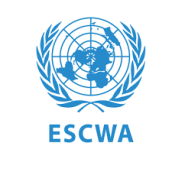
The Economic and Social Commission for Western Asia (ESCWA) supports its 21 member States in their efforts to ensure prosperity and equality. By analysing regional and national economic, social and environmental trends in the light of global United Nations agendas, ESCWA provides Arab countries with policy recommendations that build on a thorough analysis of facts and commonalities. It also underscores the benefits of integration and creates regional public goods, including knowledge, data, tools and capacity. The shared language, culture and aspirations of the people of the Arab region form a solid foundation to tackle transboundary challenges through collective action at the national, regional and global levels. ESCWA is committed to supporting member States in optimizing their common strengths as they tackle shared weaknesses and challenges to create better opportunities for current generations and broader horizons for the future.


The Arab Academic Network for Land Governance (ARA-LG) was officially launched during a dedicated session at the Third Arab Land Conference, held between 18-20 February 2025 in Rabat, Morocco. ARA-LG is co-established by four leading universities with deep expertise in land-related disciplines, each contributing distinct regional perspectives and academic strengths: Al-Quds University – Palestine, University of Duhok – Iraq, Cairo University – Egypt, Hassan II Institute of Agronomy and Veterinary Medicine – Morocco.
ARA-LG responds to the growing need for stronger academic engagement in land governance across the Arab region, connecting universities and research institutions to strengthen knowledge, innovation and collaboration in this vital field.

Established in 2006, the Global Land Tool Network is a coalition of over 85 international partners committed to increasing access to land and tenure security for all, with a particular focus on the poor, women and youth. GLTN partners include international rural and urban civil society organizations, research and training institutions, bilateral and multilateral organizations, and international professional bodies. Several GLTN Partners contribute to the work of the Arab Land Initiative.
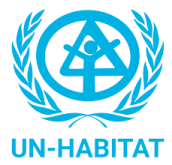
The United Nations Human Settlements Programme (UN-Habitat) is the United Nations agency for human settlements and sustainable urban development. It was established in 1978 as an outcome of the First UN Conference on Human Settlements and Sustainable Urban Development (Habitat I) held in Vancouver, Canada in 1976.
It is mandated by the United Nations General Assembly to promote socially and environmentally sustainable towns and cities with the goal of providing adequate shelter for all.
UN-Habitat work focuses on seven areas:
- Urban Legislation, Land and Governance;
- Urban Planning and Design;
- Urban Economy;
- Urban Basic Services;
- Housing and Slum Upgrading;
- Risk Reduction and Rehabilitation;
Urban Research and Capacity Development.
UN-Habitat plays host to the GLTN Secretariat in the Land and GLTN Unit in the Urban Legislation, Land and Governance Branch of the agency. The Arab Land Initiative is hosted within the GLTN Secretariat.